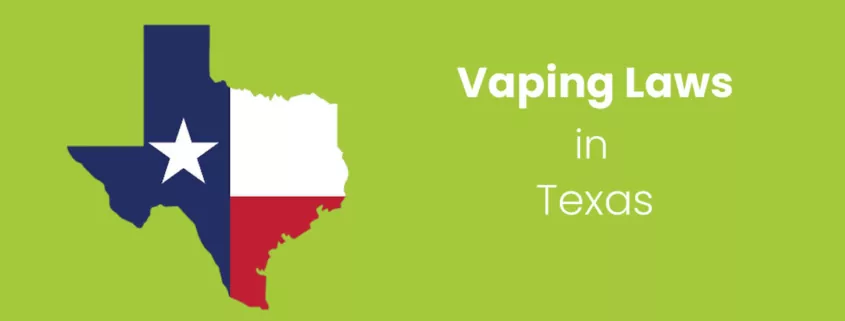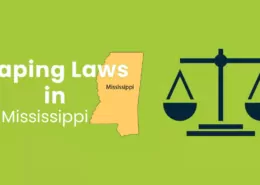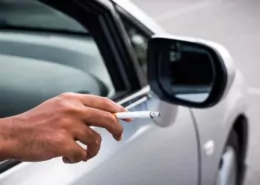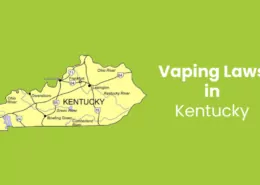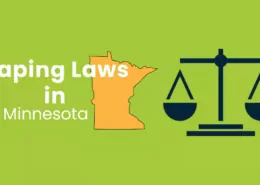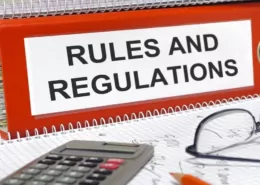Vaping Laws in Texas: Age, Sales & Public Use in 2025
From the bustling metropolises of Houston and Dallas to the wide-open spaces of West Texas, the Lone Star State has developed a unique and increasingly stringent set of regulations for vaping products. As e-cigarettes and similar devices have grown in popularity, Texas lawmakers have responded with a multi-layered legal framework aimed at protecting public health. This guide provides an in-depth look at Texas’s current vaping laws, helping you navigate the rules with clarity and confidence.
Is Vaping Legal in Texas?
Yes, vaping is legal for adults aged 21 and over in Texas. However, it is subject to a comprehensive set of regulations governing who can buy these products, where they can be used, how they are marketed, and, with the passage of SB 2024, which specific products are permitted for sale in the state.
What Texas Considers an E-Cigarette
Texas law provides specific definitions for vaping products. An “e-cigarette” is defined under Tex. Health & Safety Code Ann. § 161.081(1-a) as a device that simulates smoking by using a mechanical heating element, battery, or electronic circuit to deliver nicotine or other substances in a vaporized form. This includes e-cigarettes, e-cigars, e-pipes, and their components. The term “vapor product” is also used, often encompassing devices and the substances used to fill them, regardless of nicotine content, especially in the context of new legislation like SB 2024.
Age Restrictions: Strictly 21, with a Military Exception
Texas enforces a minimum legal sales age of 21 for all tobacco and e-cigarette products, aligning with the federal “Tobacco 21” law. It is illegal for any person to sell, give, or cause to be sold or given any e-cigarette product to someone under 21 years of age.
However, Texas law (Tex. Health & Safety Code Ann. § 161.082) includes a specific exception for active-duty military personnel, who are permitted to purchase vaping products at the age of 18 with a valid U.S. or state military identification card. There is also a grandfather clause for individuals born on or before August 31, 2001.
Retailers are legally mandated to verify the age of any purchaser who appears to be under 30 years old by checking a valid government-issued photographic identification. Minors under 21 caught possessing, purchasing, or using vaping products face a Class C misdemeanor, which can result in a fine of up to $100 and may require attendance at a tobacco awareness program or community service.
The New Era of Vape Regulation in Texas 2025
The most recent development is Senate Bill 2024 (SB 2024), signed into law in June 2025 and effective September 1, 2025. This legislation dramatically alters the types of vaping products that can be legally sold in Texas.
What SB 2024 Bans:
The new law makes it illegal to market, advertise, or sell any vaping product that:
- Is manufactured in China or any other country designated as a “foreign adversary” by the U.S. Secretary of Commerce. This specifically targets the e-liquid or consumable substance within prefilled disposable vapes, meaning devices manufactured in China but filled with American-made e-liquid may remain legal.
- Contains prohibited additives, including cannabinoids (like THC), alcohol, kratom, kava, psychedelic mushrooms, or tianeptine.
- Features child-appealing designs, such as cartoon characters, candy or food imagery, celebrity endorsements, or packaging that mimics popular brands aimed at children.
- Is shaped like non-vaping items, such as school supplies, phones, lipstick, or toys.
This law actually bans most prefilled disposable vapes currently on the market, as the vast majority are manufactured and filled in China. However, it preserves access to most refillable pod systems, open-system devices (box mods), and e-liquids made and filled in the United States.
Enhanced Penalties under SB 2024:
The bill significantly increases the penalties for violating these marketing and product restrictions, elevating them from a Class B to a Class A misdemeanor. This carries a potential punishment of up to one year in jail and a fine of up to $4,000 per offense.

Where Vaping is Prohibited in Texas
Texas law establishes several location-based restrictions on vaping, with many municipalities enacting even stricter local rules.
Statewide Prohibitions:
State law prohibits smoking and vaping in a number of specific public places, including16:
- Public primary and secondary schools, and within 300 feet of school property.
- Elevators, enclosed theaters, libraries, museums, and hospitals.
- Public transportation vehicles, including buses, trains, and planes.
- Childcare facilities (including in vehicles used for transport and during field trips).
- Licensed pediatric extended care transportation vehicles.
Local Ordinances: The Patchwork of City-Level Bans
While Texas does not have a statewide smoking ban for all private workplaces, restaurants, and bars, over 100 Texas municipalities have passed their own comprehensive smoke-free ordinances that include e-cigarettes. This creates a patchwork of rules across the state. Major cities with such inclusive ordinances include:
- Houston: Prohibits vaping in all enclosed public places and within 25 feet of building entrances.
- Dallas: Implemented a comprehensive ban effective December 11, 2025, covering all smoking-prohibited locations plus a 15-foot buffer zone from entrances.
- San Antonio: Added e-cigarettes to its smoking ordinance, with graduated fines from $200 to $2,000 for repeat violations.
- Austin: Maintains a comprehensive ban with a 15-foot buffer zone around pedestrian entrances.
- Fort Worth and El Paso also have comprehensive local bans.
In these cities, vaping is generally prohibited in all indoor workplaces, public spaces, restaurants, and bars. It is crucial to check local ordinances, as they are often stricter than state law.
School Policies: Mandatory Disciplinary Action
Texas has one of the strictest school-based enforcement mechanisms in the nation. House Bill 114 (HB 114), effective since September 2023, mandates **placement in a Disciplinary Alternative Education Program (DAEP)** for any student caught possessing, using, selling, or delivering an e-cigarette on campus, within 300 feet of school property, or at any school-sponsored event. This applies even to first-time offenses.
Ecigator is one of the well-known vape brands spun off from FM Technology Co., Ltd, it’s an ISO-certified disposable vape manufacturer for OEMs, ODMs, and OBM since 2010. The founder team comes from top firms with more than 10 years of experience in the vaping industry and has devoted thousands of hours to providing users with a better and better experience.
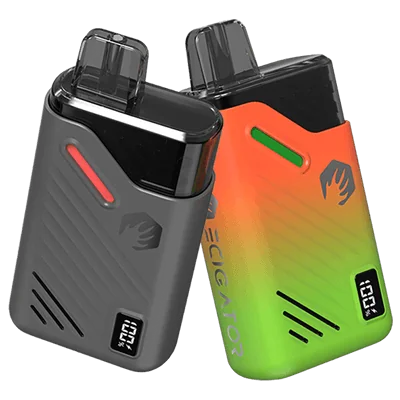
18K Disposable Pod Kit
Disposable Pod Kit – 18ml changeable pod with 650mAh rechargeable battery.
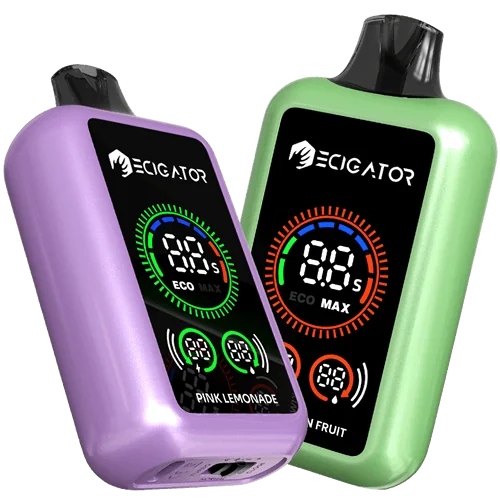
20K with Large Screen
20000 Puffs Disposable Vape with large screen. Normal and Boost working modes.
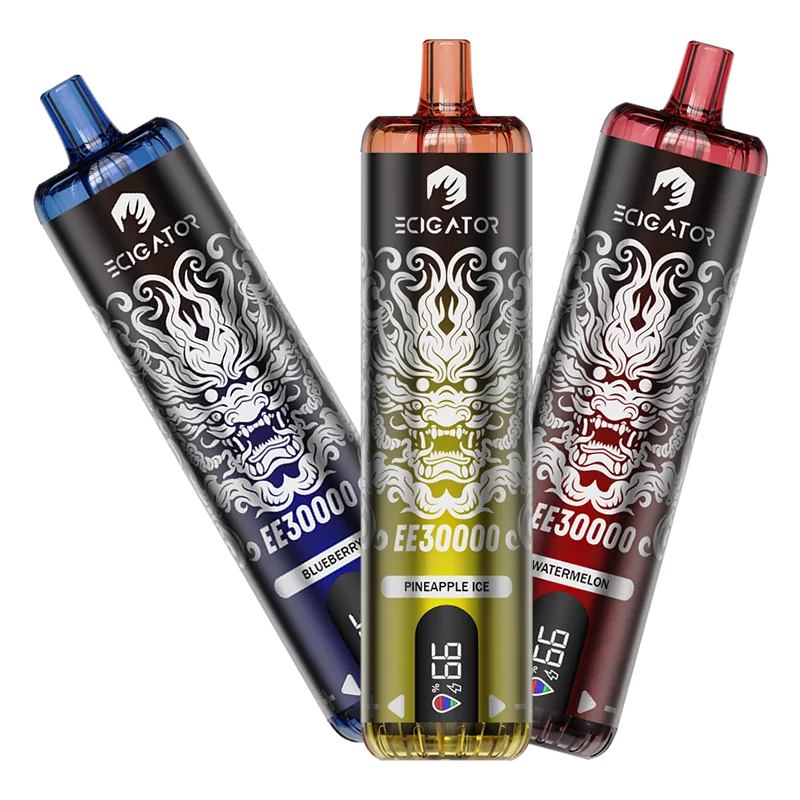
30K DTL Disposable
30K Puffs DTL(Directly to Lung) disposable vape with airflow control and screen.
Selling Vaping Products in Texas
The sale of vaping products in Texas is a regulated activity requiring specific permits and adherence to strict sales practices.
Retailer Licensing and Permits:
All businesses selling e-cigarettes in Texas must obtain an e-cigarette retailer permit from the Texas Comptroller’s Office. The permit costs $180 for businesses without existing tobacco permits (or $90 for those who already have one) and must be renewed every two years. Retailers must also hold an active Texas sales tax permit for each location.
Sales Practices and Advertising:
- No Self-Service Displays: All vaping products must be kept behind the counter or in locked cases, inaccessible to customers without employee assistance.
- Vending Machines: Vending machine sales are restricted to locations where minors are prohibited, such as adult-only establishments.
- Advertising Restrictions: In addition to the product design restrictions under SB 2024, another new law, SB 1316, prohibits outdoor advertising of cigarettes, e-cigarettes, or tobacco products within 1,000 feet of schools or churches, effective September 1, 2025.
- Online Sales: All retailers conducting delivery sales must register with the state and implement a dual age verification system, checking the buyer’s age at both the time of purchase and upon delivery.
Taxation of Vaping Products
A notable aspect of Texas’s regulatory approach is its taxation policy. As of mid-2025, Texas does not impose a special state excise tax on e-cigarettes or vaping products. These products are subject to the state’s standard 6.25% sales tax, plus any applicable local sales taxes, but they are not taxed at the higher rates applied to traditional tobacco products. This distinguishes Texas from many other states that use high excise taxes as a primary tool to discourage vaping.
THC Vape Pens: A Special Case with Severe Penalties
It is critically important to understand the legal status of cannabis-derived vaping products in Texas. While SB 2024 bans vaping products containing cannabinoids, the state already has extremely strict laws regarding THC. Possession of any amount of THC concentrate, as found in most THC vape pens, is classified as a felony in Texas, regardless of the quantity. This is a unique and severe penalty structure compared to most other states and carries significant legal consequences, including potential prison time, even for possessing a single THC vape cartridge.
Conclusion:
The legislative changes taking effect in 2025, particularly Senate Bill 2024, mark a new era of stringent vaping regulation in Texas. For businesses, immediate preparation for SB 2024’s requirements is essential for compliance. For consumers, this means a change in the availability of certain popular products. As Texas implements these new rules, its unique regulatory model will be a key case study in the ongoing national effort to balance public health, youth protection, and the realities of the modern nicotine market.
References
- FindLaw – Texas Health & Safety Code § 161.252 (Possession by Minors)
- Texas Comptroller – Minors and Tobacco
- Justia Law – Texas Health & Safety Code § 147.0051 (Retailer Permit)
- Texas Penal Code – Chapter 48 (Conduct Affecting Public Health)
- Texas Medical Association – Smokefree Texas
- Malaysia Negeri Sembilan Backs Vape Ban, Awaits Clear Laws - August 5, 2025
- Is It Illegal to Vape or Smoke While Driving in Massachusetts? - August 5, 2025
- Austria Plans to Ban Disposable E-Cigarettes - August 5, 2025

